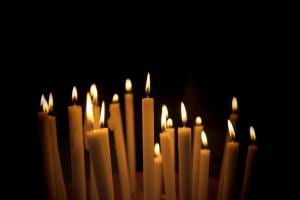I happened to come across this article yesterday and found much of the response on Twitter intriguing. The article is by Ayaan Hirsi Ali about her decision to become a Christian. She writes:
To me, this freedom of conscience and speech is perhaps the greatest benefit of Western civilisation. It does not come naturally to man. It is the product of centuries of debate within Jewish and Christian communities. It was these debates that advanced science and reason, diminished cruelty, suppressed superstitions, and built institutions to order and protect life, while guaranteeing freedom to as many people as possible. Unlike Islam, Christianity outgrew its dogmatic stage. It became increasingly clear that Christ’s teaching implied not only a circumscribed role for religion as something separate from politics. It also implied compassion for the sinner and humility for the believer. Yet I would not be truthful if I attributed my embrace of Christianity solely to the realisation that atheism is too weak and divisive a doctrine to fortify us against our menacing foes. I have also turned to Christianity because I ultimately found life without any spiritual solace unendurable — indeed very nearly self-destructive. Atheism failed to answer a simple question: what is the meaning and purpose of life?
Some people on Twitter, I mean X, were dubious and skeptical about what sort of conversion this might be. Can one look over the intellectual bankruptcy at the heart of our current malaise and just make a decision to join oneself to the spiritual heritage of the West? But then Mary Harrington drew special attention this line:
Of course, I still have a great deal to learn about Christianity. I discover a little more at church each Sunday.
She tweeted:
Everyone’s losing their minds over Ayaan’s utilitarian way of talking about Christianity in this essay, but I bet any money she had a full-on Damascene conversion and it’s just too personal to talk about.
The fruit, as many pointed out, will be visible as time goes on. But I was rather struck when I sat and listened to the gospel read out in church yesterday, having, tragically, not had time to read or think about it before collapsing into my usual pew. Jesus told this curious story about what his kingdom is like, and what sort of people end up becoming part of it. It’s not too long, and maybe you don’t have time to go looking it up, so here it is:
Then the kingdom of heaven will be like ten virgins who took their lamps and went to meet the bridegroom. Five of them were foolish, and five were wise. For when the foolish took their lamps, they took no oil with them, but the wise took flasks of oil with their lamps. As the bridegroom was delayed, they all became drowsy and slept. But at midnight there was a cry, ‘Here is the bridegroom! Come out to meet him.’ Then all those virgins rose and trimmed their lamps. And the foolish said to the wise, ‘Give us some of your oil, for our lamps are going out.’ But the wise answered, saying, ‘Since there will not be enough for us and for you, go rather to the dealers and buy for yourselves.’ And while they were going to buy, the bridegroom came, and those who were ready went in with him to the marriage feast, and the door was shut. Afterward the other virgins came also, saying, ‘Lord, lord, open to us.’ But he answered, ‘Truly, I say to you, I do not know you.’ Watch therefore, for you know neither the day nor the hour.
This strange tale has perplexed a lot of people down the ages, as they have wondered what sort of virgins–or versions, as some children like to say–these might be. What is the oil? Who is the bridegroom? What is Jesus talking about? Why is the kingdom always about the division between people who seem, for all outward appearances, to look very like each other?
For there are ten women, and they all have one job–to attend at the feast, to go along to the wedding bearing their small lights, to participate in the work of joining the new bridegroom to his bride. If they were modern people, they would all be jammed into uncomfortable dresses that they would never wear again, no matter what they tried to tell themselves about the expense and cut. They would be attending the bride, not the groom, and they wouldn’t have to hold lamps, they would be bearing extravagant–though smaller than the bride’s, of course–clusters of flowers suitable to the season of the wedding. Their job would be to express unalloyed joy for the insta-reel, then to be rewarded for their smiles with lashings of champagne and strong drink and bawdy dancing. Indeed, their participation is decorative rather than practical or essential, and, the morning after, too often flat. If you have been married, how many of the people who attended you do you even know? Don’t you occasionally look them up on Facebook and then go back to the story about the drunken relative who embarrassed you during the toast?
There are a lot of weddings in the Bible, and, though there might be some similarities, on the whole, they sound a vastly different tonal structure than weddings today. Many have peculiar and painful trouble associated with them. Adam was happily married at first–his own wedding being divinely arranged–but then pitched the world into sin right afterward. Jacob was immediately disappointed in his marriage, ending up with two wives instead of only one. David got most of his wives in strange ways and Solomon, well, the books would be too small to document the idolatrous shrines and demonic temples that had to be constructed as each new princess took her place in his harem. That is before you finally slog through the book of Hosea. What interests me is that the reader doesn’t hear about the weddings themselves, in the Old Testament. The writers generally announce that people were “given in marriage.” It takes finally turning that last page over to the New Testament to find that Jesus himself not only attends such occasions but uses them as the base for many of his divisive and unsettling parables. The marriages of the people involved–how well they got on with each other, how long it lasted, were they happy or unhappy–don’t get much attention. His focus is always on the feast, the sudden demarcation between those who are in and those who are out. It’s almost as if, absent all mention of the bride, all those who go in with the bridegroom belong to him corporately, as if their joy equals his own.
So anyway, what about these ten women, what are we to make of them? They are described as wise on one hand and foolish on the other, as prepared and then as caught off guard. Five think ahead and take extra oil, anticipating, perhaps, that they may be waiting longer than planned. The other five take their full lamps and nothing else. They are those sorts of people who click on the e-vite, don’t read it very carefully, and then when the time arrives, are flustered and irritated because they hadn’t thought about what going to the party meant in real terms. The feast was jumbled in amongst all their other cares and occupations. They might not even have wanted to go very much, when it came right down to it. Or maybe they did want to, but couldn’t take the trouble to examine all the consequences of getting ready and finding the uber.
Whereas, the five wise women know that they might be waiting for a while. Else why take extra oil? Somehow they divine that the amount of time it takes to burn through the amount in the lamp might be inadequate. They are the sort of people who are perpetually anxious about their phones suddenly dying that they perpetually carry their chargers with them wherever they go. They know themselves, their lamps, and the bridegroom well enough to be prepared when he takes his sweet time.
There is something else that the wise women possess, besides the oil they provide for the long evening of waiting. They possess desire. Indeed, they are gripped with a certain apprehension, an anxiety that the bridegroom might come and they might not be there, ready and waiting, to go in with him to the feast. They know that being left outside would amount to their own desolation and ruin. You can see this in the exchange between the two groups. Those without oil find they are unhappy, and think it will be no problem for those with oil to give it away. What’s the big deal? But those with oil, so far from being unfeeling towards those fools who didn’t bring their oil, understand that if they walk away, all will be lost. They can’t afford to be anywhere else than standing there on the threshold, waiting to go in with the bridegroom.
Generations of Christians have understood that this is a picture of faith. Either you have it or you don’t. Either you believe or you don’t believe. But it is really the desperation at the back of faith that makes it a peculiar and uncanny kind of thing. The person “of faith,” that is who believes that Jesus is the bridegroom and the only way into that eternal banquet, will stop at nothing to gain entrance. No amount of persecution or other manners of persuasion will make them give away anything that might let them in. They have only one hope, and that is to be with Jesus.
What is so alarming about the parable, of course, is that the world puts it the other way. The “foolish” ones are those standing there with their oil, waiting awkwardly at the door, insisting that He is about to come any moment. The “wise” ones are wandering the marketplace buying gallons of different kinds of oil. exchanging views on the merits of different kinds of bridegroom, pontificating about whether the food at the feast will be ethically sourced. Whatever one might think about the conversion of Hirsi Ali, if she is creeping into a church and sitting there, listening to the Holy Scriptures and trying to understand what the bread and wine might be, she is no fool. I hope she will keep waiting with the rest of us, for surely, our Lord is coming soon.
Have a nice afternoon! And find me on Substack.













